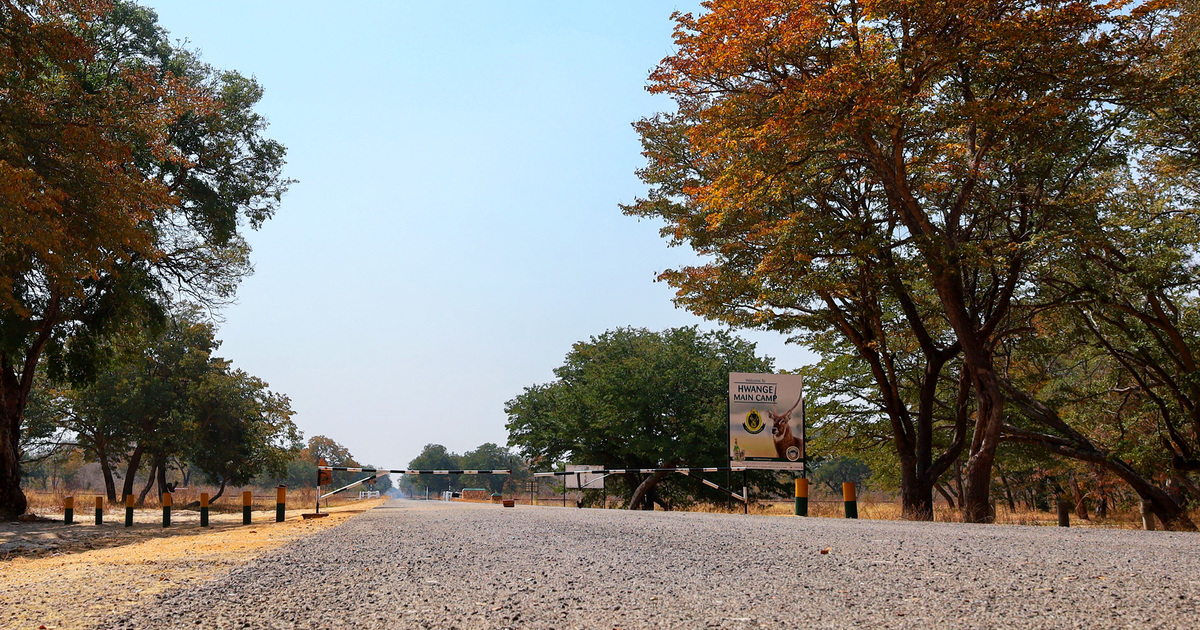
(Hwange, Zimbabwe –20 October, 2023) – Construction has started on a tourism complex at Hwange National Park, expected to improve security and re-ignite the tourism potential of Zimbabwe’s largest protected area.
Construction of the complex at Hwange’s main entrance gate received the green light from Zimbabwe’s Minister for Environment, Climate, and Wildlife, Mangaliso Ndlovu. It is the latest activity in the 25-year partnership between ZimParks and IFAW to support wildlife conservation in Hwange NP—home to 45,000 elephants and other critical biodiversity.
With an expected completion date of June 2024, the new complex at Hwange NP’s main entrance point is a mixed-use development, including a visitor centre, tourism offices, a car park, housing for wildlife rangers and a new gate.
Speaking at an event to officially launch the project, Hon. Mangaliso Ndlovu, Zimbabwe’s Minister of Environment, Climate, and Wildlife, said the complex would significantly improve the visitor experience at Zimbabwe’s flagship park.
“This new complex will greatly increase the visibility of Hwange National Park, improve the visitor experience, enhance security and help reposition the park as a competitive and must-visit destination,” said Ndlovu.
Since 2019, the ZimParks-IFAW conservation partnership has concentrated on improving park infrastructure, uplifting community livelihoods, strengthening law enforcement, and developing tourism.
“IFAW’s long-term partnership with ZimParks is to transform Hwange NP into a well-managed and well-protected park that can serve as a haven for wildlife and an economic engine for Zimbabwe,” says Alleta Nyahuye, IFAW’s Director for Zimbabwe.
“As we forge ahead with this important mission of restoring Hwange NP to its former glory, we are excited about the journey ahead and remain optimistic that our interventions will contribute to the recovery and growth of Zimbabwe’s tourism sector.”
Earlier this year, the partnership between IFAW and ZimParks was extended for 25 years, with an expected investment of USD 50 million.
The new complex will serve as a high-security checkpoint with smart-camera technology systems to fortify efforts to prevent the illegal trafficking of wildlife products.
As part of the tourism development interventions, the ZimParks and IFAW have supported the scooping of Nyamandlovu Pan, a critical waterhole for wildlife and a key tourist attraction, upgraded Mandabvu picnic site and has refurbished guest accommodation lodges at Hwange Main Camp.
ENDS
Press Contacts:
International Fund for Animal Welfare (IFAW)
Luckmore Safuli: +263772527736; [email protected]
Christina Pretorius: +27 (0)82 330 2558; [email protected]
Zimbabwe Parks and Wildlife Management Authority (ZimParks)
Tinashe Farawo: +263772433901; [email protected]
About IFAW (International Fund for Animal Welfare)
IFAW is a global non-profit helping animals and people thrive together. We are experts and everyday people, working across seas, oceans and in more than 40 countries worldwide. We rescue, rehabilitate and release animals, and we restore and protect their natural habitats. The problems we’re up against are urgent and complicated. To solve them, we match fresh thinking with bold action. We partner with local communities, governments, non-governmental organisations and businesses. Together, we pioneer new and innovative ways to help all species flourish. See how at ifaw.org
About Zimbabwe Parks and Wildlife Management Authority (ZimParks)
Tasked with the protection, management and administration of the wildlife of Zimbabwe, the Parks & Wildlife Management Authority has a proud history of sound management in conservation. Zimbabwe’s rich biodiversity provides a haven for many species of flora and fauna to survive and thrive. Given the large and expansive resource under our stewardship, this responsibility cannot be achieved in isolation. Our network of protected areas, conservancies and trans-frontier parks ensures that we share the load. In particular, Trans-frontier Conservation Areas promote collaboration with Zimbabwe’s neighbours to curb international wildlife crime, promote tourism and preserve the shared heritage, which itself knows no borders. www.zimparks.org.zw
